Blog
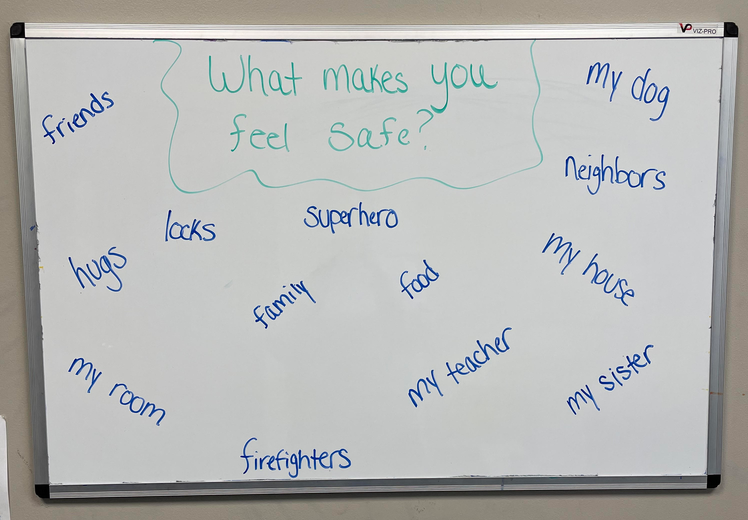
10 Ways to Help with Anxiety at Home
Anxiety can be a tricky emotion, and oftentimes, it masks as anger. Make sure to question what is making your child feel angry…the answer may reveal their true emotion of anxiety. If this is the case, make sure to help your child problem-solve and face their fears of whatever is causing that anxiety so they can move past this tough feeling. Also, make sure to provide empathy, listening, and validation! This is how you maintain a strong bond with your child, and they will always remember if you validated their truth!
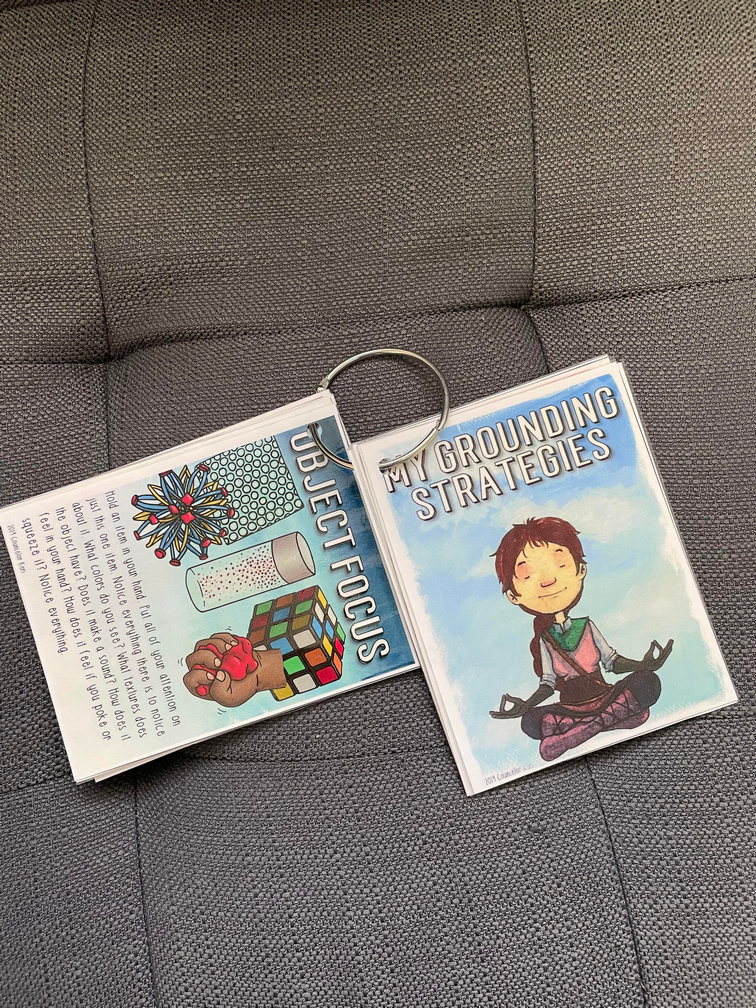
- Recognize that we go through, and currently are in hard times
It’s important to recognize that you are going through hard times and it’s natural to go through hard times.
As a parent, friend, colleague, etc., it is also important to have empathy and compassion. For children, sometimes behaviors exhibited such as anger reveals that there is something underlying.
Anger is a natural emotion and we can’t prevent it, but can be coming from something else. If a child, when angry, is screaming, and as a parent you don’t want them to scream, allow them to have another outlet to express themselves. Remember, there is no such thing as good or bad feelings! Normalizing emotions will ensure your child does not feel shame for feeling the way they do, and they will feel comfortable coming to you when they need you most!
Don’t tell them what they can’t do, but tell them what they can do to let out their emotions when they are angry or upset.
- Talk about the good things that happened in your day. ANYTHING COUNTS
Was the weather nice? Did your child complete their assignment in class? Did they make a basket a recess? Did they have an extra Hershey Kiss in their lunch? Did they go through the whole day without getting upset at someone?
These are all wins you can have your child tell you about after school or at the end of their day. Celebrate even the smallest of wins in our days. Even us as adults should practice this.
Of all the things that maybe went wrong during our day, something surely went right. Did you not get stopped by that train on the way to work? That’s a good feeling, right!?
Every day does not have to be an all or nothing. Especially for a child who may be dealing with anxiety. They may tend to only focus on the things that are making them feel the way they do, but if you can get them to talk about something good that happened in their day, it could make a huge difference. Don’t forget to share with them some of the things that made your day too!
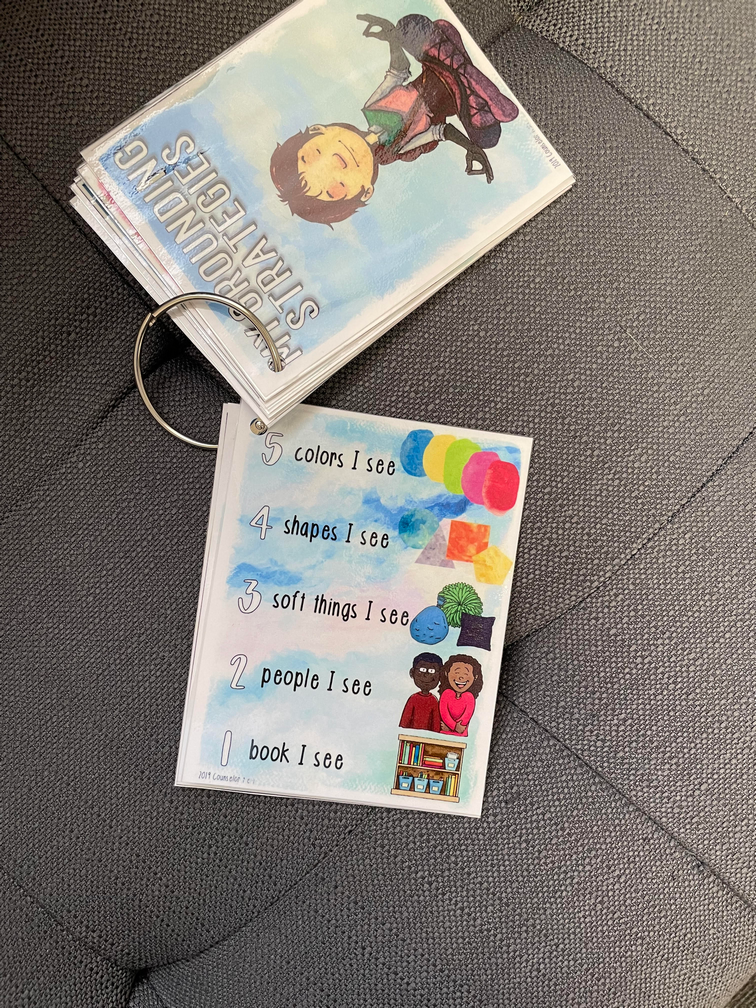
- Utilize Art
Art can be an excellent outlet for a child. Most kids like drawing and creating art pieces.
At Westside, some of our counselors have the child decorate a “worry box.” The child can decorate the box and when they have days with worries or when they’re upset or whatever they might be, they can draw their worry and put it in the box. Get rid of it, but also express how they’re feeling.
Art is also a fun tactile project you can do with your child and the whole family. Spend a night drawing, painting, coloring the same project. Do it together. Kids love it and finishing it and seeing how great they did is a rewarding experience.
Remember: What’s one good thing that happened today? “I painted a picture!”
- Exercise is important
Exercise is good for many reasons. But we’re here for how it can help with anxiety. Exercise is good for physical and mental health.
Kids need movement. As a family, you can all find unique ways to get movement in there and it naturally releases those “happy chemicals”! And in some ways, it is a healthy distraction. It’s not appropriate to distract all the time, but if in cases of a healthy distraction, it’s OK occasionally.
Children with ADHD, for example, need the sensory input to get some energy out. If you notice your kid is fidgeting, shaking their leg up and down, biting their nails, pulling their hair, or picking their skin, they have excess energy that needs to come out! Exercising is a safe and healthy way to do it. Kids also love having movement on the floor. Do some break dancing or freeze dancing.
You can make it a fun competition for the whole family!
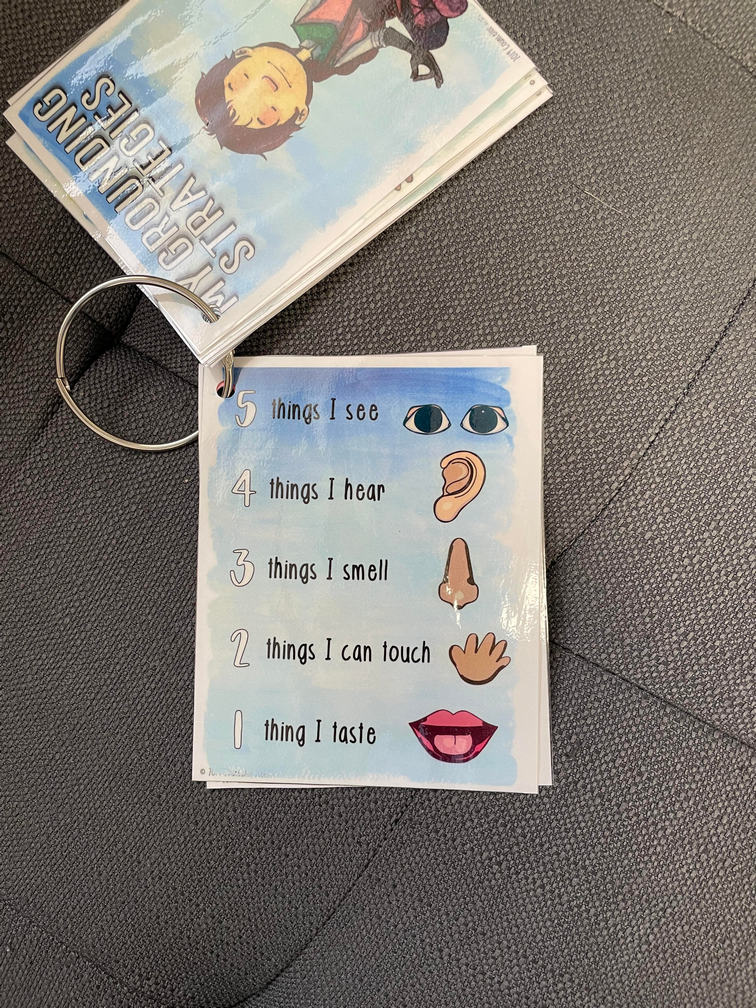
- Have structure to the day
We all need structure. Especially children.
Have a visual schedule on the fridge. This is a simple problem solver. This allows the child to know what they are doing and when. It doesn’t have to be strict and can be loose and incorporate “4-6 is free time and we can do what we want.” Just put together a schedule that works for you and your child.
Think of a typical work day for you. We need that structure or a schedule of sorts to follow throughout the day. When you get to work, checking your emails may be the first thing you do everyday. For some, if the day takes some twists and turns, it may throw us off.
For a child, that can have a far greater impact if they are not able to adjust to changes.
Having a routine is safe. Have the child make the schedule with you! This can help them buy-in to the rules if they take charge in making them. Give the child some leeway with this as well. Help them, but let them make some decisions.
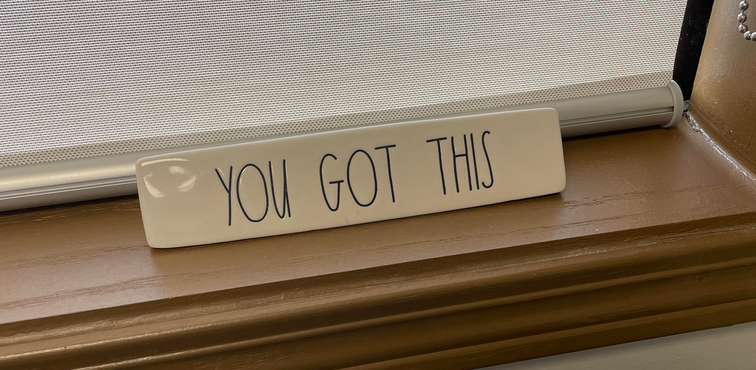
- Have your child do an activity that makes them feel accomplished
In so many ways, this is going to be beneficial! It can also be good for heavy work, and doing so can give them that sense of accomplishment and something that they can brag to their friends about.
Maybe have them create their own game. Put together an obstacle course, with a finish and end. Doing this can help them work on executive functions (set of mental skills that include working memory, flexible thinking, and self-control. We use these skills every day to learn, work, and manage daily life. Trouble with executive function can make it hard to focus, follow directions, and handle emotions, among other things.)
https://www.understood.org/en/articles/what-is-executive-function
And this, of course, will build their self confidence. Competition can be everything among kids. This can be their way of shining.
- Laughter is the best medicine
When our therapists make mistakes, or they drop their pen, or spill something, a fun way to get past it is say something like “whoopsie daisy.” The kid will find it funny and it helps the therapist, too, that not everything has to break the day.
It can help with social skill building. If a child goes to grab a book, instead of getting upset because they grabbed the wrong one, saying a funny word like “whoopsie daisy,” can make a situation lighter.
Another example: Laugh about your dog trying to lick up the coke off the floor, laugh about them trying to sneak food off a counter, laugh about them for whatever reason really wanting to eat tissues.
Instead of getting mad about it, laugh about it. Your mood will change.
- Spend true quality time as a family
Put the technology away for a while! We’re all glued to our phones whether we like to admit it or not. We can all benefit from remembering life before technology.
Experience sensory input, besides a phone. Go on a walk, play at the park, go fishing, just spend time outside. Many therapists here at Westside set time limits on different apps on their phones as a form of self-care.
In-person interactions and time spent together can make great positive impacts on a child who may be dealing with anxiety. Even if your child isn’t dealing with anxiety, quality time is still important.
It’s so easy to try and force our kids off the electronics, but have you checked in with yourself as to how often you are on your electronic devices? We want to replace forcing a child to do something with modeling what we want to see in them. If you put away your technology (and when you do, make sure to announce it to your kids so they know you are limiting your time on it), they will be more likely to do the same!

- Make the home a safe space to talk about how we’re feeling
The world can be a scary place. Give your child a safe space to talk about what they are feeling and listen without any judgment. What some may think is an outrageous worry, to a kid, it is very real.
Say things like: “Tell me more about that,” “What makes you feel that way?,” “what do you feel?”
This is so important right now. The world doesn’t feel like a safe space. We can at least provide that safety in our homes.
- Make the most of the now
We don’t have all the answers. We never will have EVERY answer. And with anxiety it comes with the desire to have control.
Make the best of the now and the moment.
A way to practice this can be simple: Play with a pet. Pets will love us unconditionally. Lay with them on the floor, play with them in the backyard, pet them, etc. Pets are always in the moment. They’re not thinking ahead and they definitely forgot why they were in trouble 5 minutes ago 🙂
The love they have for you and the love you have for them can be powerful.
Anxiety is a tricky emotion and some certainly need help to manage it. These were just 10 tips our therapists like to tell parents and kids on how to manage it. Not all 10 may work, but if you can find the one that does, stick with it.




